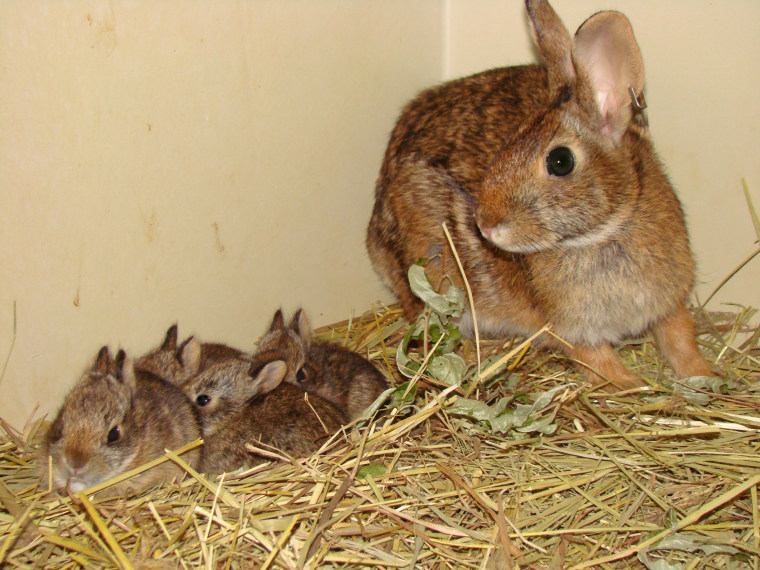The grass is not that green for the New England cottontail rabbit anymore, as its habitat is disappearing — and if there is no intervention the Massachusetts famous rabbit could become extinct, experts warn.
This rabbit species was once so popular that it inspired Peter Cottontail, Thornton Burgess children’s story character, a century ago, as well as songs, comic strips, movies and television specials.
The song “Here comes Peter Cottontail” was composed in 1950 by Steve Nelson and Jack Rollins, and a Gene Autry recording later rose to the top of the U.S. Billboards charts and has become one of the most popular Easter songs of all time.
But over the last 50 years, the New England cottontail lost more than 80 percent of its habitat, according to the Wildlife Management Institute, a non-profit conservationist organization. The rabbit is restricted to parts of Maine, New Hampshire, Massachusetts, Connecticut, Rhode Island and southeastern New York.
Land that was once used for agriculture has become mature forest causing the rabbit’s population to thin.
This rabbit needs densely growing young trees, shrubs and brush — what is described as young forest. And as an added bonus, restoring some of this habitat would also benefit the American woodcock, the golden-winged warbler, the brown thrasher, the indigo bunting, the black racer and the wood turtle, among other native species, conservationists note.
But the New England cottontail rabbit is not yet listed as an endangered species, and conservationists are trying to prevent that from happening. State agencies and private organizations have partnered with the U.S. Fish and Wildlife Services to restore this rabbit’s natural habitat and shrub lands across the Northeast.
"We're making headway, putting habitat on the ground in some really key places," said Anthony Tur, an endangered species specialist for the U.S. Fish and Wildlife Service, told the Associated Press. "It's encouraging."
In Rhode Island, the Roger Williams Park Zoo began breeding the New England cottontail in captivity two years ago and they have already released 38 rabbits into restored habitats. They expect to release 100 more rabbits this year.
There are some farmers in the region, like Tom McAvoy, that are trying to help this rabbit by restoring its habitat and creating Cottontail Farms.
"My brother and sons have been involved in the project," McAvoy said to the Associated Press. "It's important for me to teach my grandchildren as well, and keeping them active and involved in the stewardship of the land."
